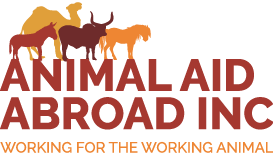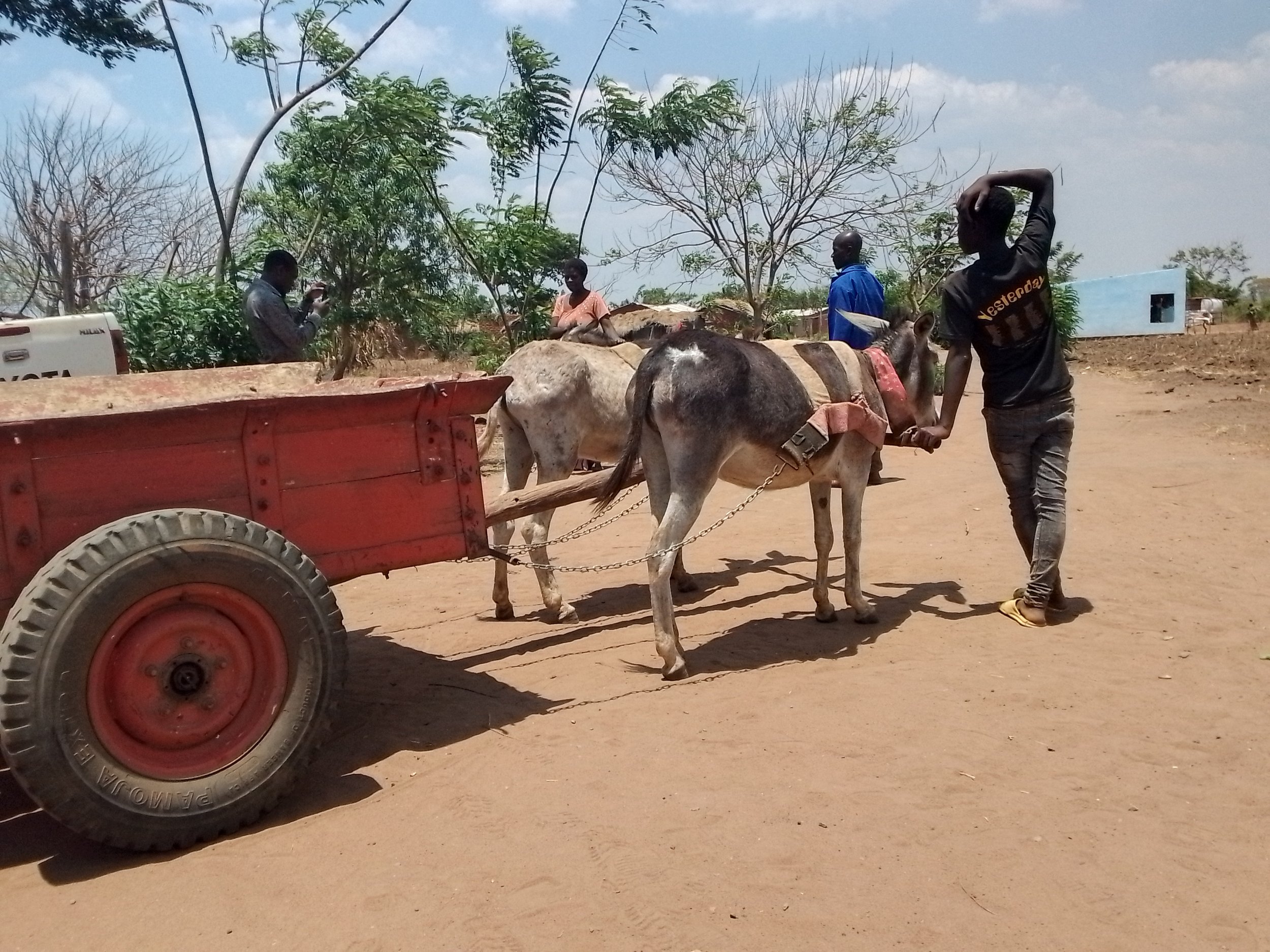Introducing Our New Project Partner in Malawi
We are proud to introduce a new partner group in Malawi – the Lilongwe Society for the Protection and Care of Animals (LSPCA). Thanks to your generous support, the LSPCA are already improving the welfare of working donkeys in rural Malawi.
When progress meets resistance
Between April and May, the LSPCA returned to areas they hadn't worked in for nearly two years. One challenge immediately became clear: many farmers had stopped using the humane harnesses and carts the team had previously distributed. Instead, they had reverted to traditional yoke systems — an outdated practice known to cause significant welfare issues, including open wounds, bruising, fatigue, and long-term joint damage. This regression was disheartening and threatened to undo progress made in previous years.
Rather than expressing disappointment or disengaging, the LSPCA team chose to reinvest in relationship building. The team sought to understand the reasons behind the shift and engaged with farmers who had continued to use the humane equipment correctly. These individuals will now be elevated as local champions — visible, trusted examples from whom others can learn.
In contrast, the situation in Dzenza offered a more hopeful picture: well-maintained harnesses, better-balanced carts, healthier donkeys, and farmers who could speak firsthand to the benefits of using proper equipment.
Donkey clinics
Over four mobile clinic days held during April and May, the LSPCA veterinary team treated a total of 591 donkeys, bringing essential veterinary care directly to rural communities that rely on these animals for their livelihoods. These clinics were not only about treatment — they also served as platforms for education, building trust, and deepening community engagement.
The first clinic was conducted on 30 April 2025 in Phikeni, where 167 donkeys were examined. Sixty-seven animals with minor wounds were treated with antiseptics and topical antibiotics, while those showing signs of more severe discomfort or inflammation from their wounds received systemic antibiotics and anti-inflammatories. A total of 148 donkeys were dewormed with Ivermectin. Concerningly, 13 donkeys displayed signs of severe arthritis, prompting advice to owners on retiring these donkeys from work. Fourteen donkeys required no medical treatment but benefited from basic care education and owner guidance. Encouragingly, the number of wounds observed was low - a promising sign of improving welfare.
On 2 May 2025, the team visited Tsokomole, where 103 donkeys were treated in what proved to be the clinic with the most urgent and distressing cases. A significant number — 67 donkeys — showed visible wounds, many resulting from improper handling and the continued use of yokes. Most injuries were linked to poor communication between handlers and animals, as well as outdated harnessing practices. In addition to wound care, 62 donkeys were dewormed and 26 received multivitamin support. Another 26 donkeys, either in good condition or pregnant, received general health checks. The widespread presence of wounds and signs of fatigue highlighted the ongoing connection between animal welfare and poor working conditions.
The third clinic was held on 19 May 2025 in Area 55. It was a day marked by both high demand and significant community impact. The team reached 143 donkeys. Thirteen donkeys had wounds requiring both topical and systemic treatments, while 121 were dewormed. Hoof trimming was carried out on 10 donkeys, and 26 received multivitamin injections. Nineteen animals were found in good health and required only monitoring and basic care guidance. What stood out in Area 55 was the strong level of farmer engagement — many stayed after their animals were treated to ask follow-up questions and help others, turning the clinic into a genuine moment of shared learning and support.
The final clinic took place on 21 May 2025 in Dzenza, where 178 donkeys were examined. Seventeen donkeys were treated for wounds - six of whom required systemic medications in addition to topical care. Deworming was carried out on 156 donkeys, 32 received multivitamin injections, and 12 underwent hoof trimming. Donkeys in good condition or late pregnancy were simply monitored. Farmers in Dzenza demonstrated notable commitment to animal welfare, arriving with good-quality harnesses and showing a keen interest in topics such as parasite control and nutrition. Their engagement and preparedness were heartening.
Harness and cart repairs
After the initial setbacks, the LSPCA team reconnected with a local artisan who had been trained in harness and cart fabrication during a previous project. They then identified equipment in need of repair. Initial activities started in Dzenza, where the artisan guided donkey owners through the practical steps to repair and maintain their existing harnesses. This hands-on session not only refreshed skills previously taught but also reignited interest amongst the farmers; many expressed renewed commitment to humane harnessing after seeing how cost-effective and manageable repairs could be.
Repairs included:
• Replacing worn straps.
• Adding padding to reduce bruising.
• Realigning parts for better cart balance.
These improvements not only restored donkey comfort but also boosted farmer confidence in the equipment. Community re-engagement sessions followed, emphasising that these changes were for the ongoing benefit of their animals, not merely to impress visiting teams.
Looking forward
The April–May field activities provided both encouraging results and sobering reminders of the challenges still faced in promoting humane working practices. While some areas have shown marked improvement in donkey health and harness use, the widespread return to yokes in other areas highlighted the fragility of progress and the critical need for sustained engagement.
This only re-emphasizes how essential continued re-engagement with these communities is — a project only made possible because of your compassionate donations. With your ongoing support, the LSPCA will continue improving the welfare of Malawi’s working donkeys and empowering the communities who rely on them.














